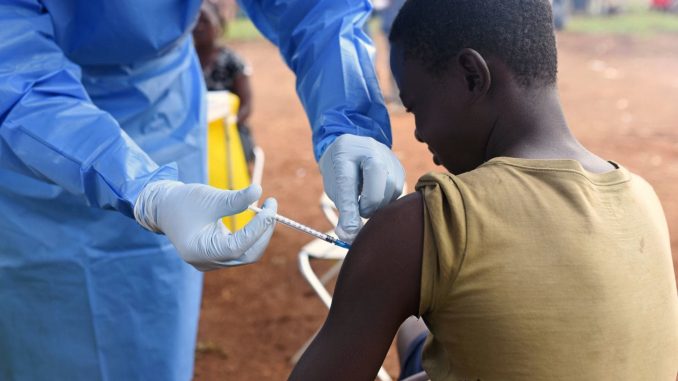
Jessica Kennedy, Staff Writer
Since the beginning of 2019, the Democratic Republic of Congo (DRC) has been facing a horrible epidemic. The Congo is facing the second largest outbreak of Ebola in history, with over 5,000 people affected. Of these 5,000, over 3,000 have gotten sick and over 2,000 have died from the virus. In July of 2019, the World Health Organization (WHO) declared the Ebola outbreak in DRC an international public health concern.
Organizations such as the Doctors Without Borders (also known in French as the Medecins Sans Frontieres, or MSF, in the Congo) and the International Foundation of the Red Cross have set up numerous sites across the DRC to treat the sick. This has been hard for the organizations because many armed groups of the DRC don’t trust the foreign doctors and unidentified individuals have been destroying the medical campsites and equipment. Though these medical staff have been administering vaccines and working to cure the sick, some DRC natives’ uncertainty of MSF has caused them to reevaluate the location of their sites. On their website, MSF said about this issue, “Medical activities have been suspended at MSF’s Ebola treatment centers in Butembo and Katwa after the facilities were attacked by unidentified assailants in late February. MSF has evacuated staff from the area for their safety pending a thorough analysis of the risks associated with continuing to provide medical care there.”
Despite the mentioned towns having their treatment centers shut down, MSF workers continue to treat citizens of the DRC by hydrating the patients, treating other infections linked to Ebola, and using experimental therapeutics to attempt to cure the virus. These therapeutics are called Remdesivir (GS5734), REGN3470-3471-3479, ZMapp, and mAb114 and are only administered to patients who give consent or have a family member give consent on their behalf. The National Institute of Allergy and Infectious Diseases and WHO have announced that since the beginning of August, when newly infected patients were given two of the experimental therapies, ninety percent have been cured of the Ebola virus. The director of the National Institute of Allergy and Infectious Diseases believes when patients are offered a new cure, it “may contribute to them feeling more comfortable about seeking care early.”
This newfound comfort is especially necessary in the DRC since it was suspected that the health minister of the Democratic Republic of Congo, Dr. Ilunga, had been mismanaging funds meant to fight the Ebola virus and bring care to the patients. The health minister resigned in July even though he denies the allegations. On its website MSF says, “Heightened political tensions and unrest have made it difficult for health workers to reach communities. In an atmosphere where rumors and misinformation are widespread, people can be hesitant to accept unfamiliar infection prevention and control practices, such as safe burials or decontamination activities.”
Since the summer, the amount of deaths and new Ebola cases have significantly decreased. The WHO reports in some areas, there hasn’t been a new case of the virus in twenty-one days, as of Sept. 17. With continuous efforts of medical relief organizations, a formation of trust from the citizens of the DRC, and the effectiveness of the experimental therapies, the Ebola outbreak of the Congo will be out of Africa soon enough.
Leave a Reply